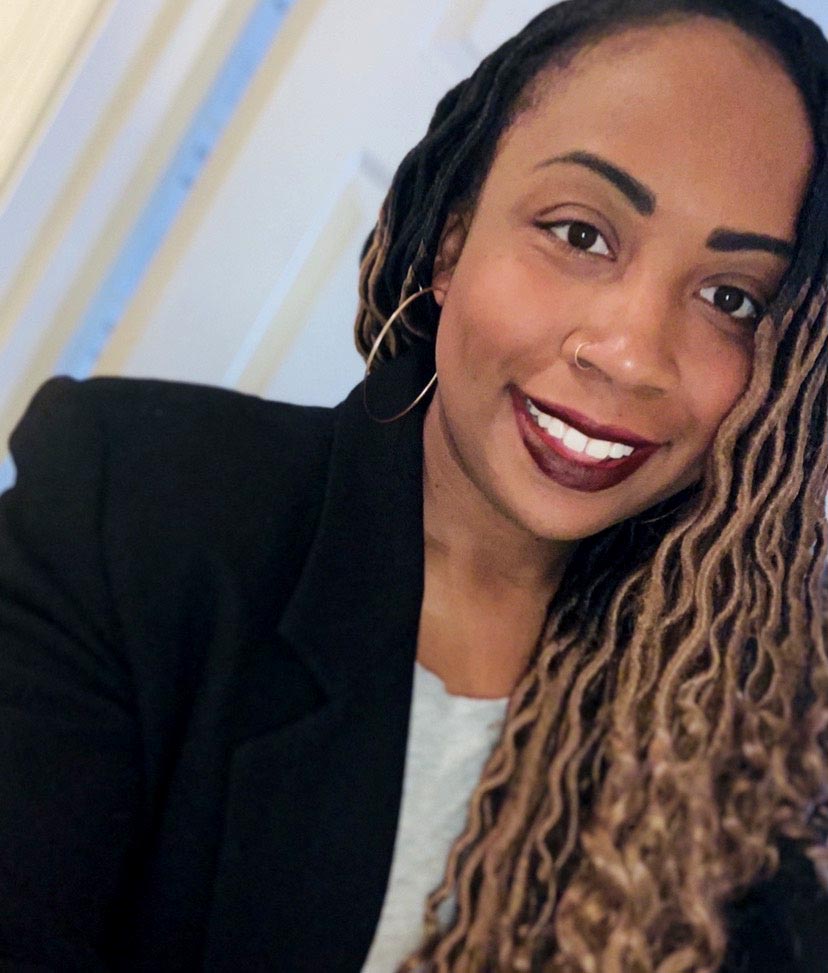Kiara Lee-Heart: Merging community and scholarly work
After living in Charlottesville, SOE alum was ready for a school “immersed in a city environment.”
Kiara Lee-Heart (Ph.D. ‘19) is a native of Richmond, Virginia. She earned her bachelor's degree from the University of Richmond, her master’s degree from the University of Virginia’s Curry School of Education, and her Ph.D. in Education, Concentration in Curriculum, Culture and Change from the VCU School of Education. She has a deep research interest in colorism education and has been engaged in the Richmond community for many years. A passionate writer, Lee-Heart teaches first-year students writing and critical thinking skills in VCU's Department of Focused Inquiry.

What originally drew you to the field of education?
I didn’t initially plan on entering the field of education. When I was a child, I wanted to become a medical doctor. Then, I got to my undergrad alma mater, University of Richmond, and fell in love with the field of sociology. Switching my major from pre-med sciences to sociology and serving in the Richmond community as a Bonner Scholar, a civic engagement-based scholarship program, helped to open my eyes to social issues, particularly those involving race, access and education. After getting my bachelor’s degree in sociology, this interest led me to pursue my master’s degree in education (with a focus in Social Foundations) from University of Virginia. There, I first learned and took part in research about the educational theories that connected to the issues I was exposed to in the community, including critical race theory and culturally relative pedagogy.
Did anyone inspire you to pursue study in this field?
Dr. Derrick Alridge, my advisor at U.Va., was the one who encouraged me to pursue my Ph.D. because of my passion for writing, research and education. Finally, after we had several talks about it, I did my research and decided pursuing a doctorate in education would be my next move. I thank him for instilling in me the confidence to believe a Ph.D. was a possibility for me. There was also a defining moment at a minority recognition ceremony I attended while I was a U.Va. student. Seeing so many Black students who looked like me graduating with Ph.D.s being recognized put a tear in my eye; it also solidified my next move.
Why VCU SOE for your Ph.D.?
As a Richmond native, I was always intrigued by VCU – from its location smack dab in the middle of the city to its focus on social issues unique to the city of Richmond. To add, after living in Charlottesville for a few years, I was ready to come back to my hometown and interested in experiencing a school more immersed in a city environment.
“When your ‘work’ is what you’re truly passionate about, it won’t feel as much like work.”
What impressed you most about the Ph.D. in Curriculum, Culture & Change program?
The Curriculum, Culture and Change program was my first choice Ph.D. program during my application process. With my sociology background, the program’s focus on foundations and social justice really resonated with me. In the program, I was able to incorporate my own community work with my scholarly work.
Any tips for students who are considering study in this program?
Yes, I have three tips for students considering study in the Curriculum, Culture and Change program.
- Incorporate what you’re truly passionate about in your studies. From response papers to your dissertation. When your “work” is what you’re truly passionate about, it won’t feel as much like work.
- While incorporating your passion is important, at the same time, being open to inspiration is key. You will be inspired by so much along your Ph.D. journey. Be open to it, and the way it may enhance the passions you came into the program with.
- Be patient. Let your work evolve throughout the program, especially through the dissertation process.
When did you first develop an interest in writing?
I’ve been writing poems since I was a little girl. I was 9 years old with a little poetry notebook under my bed; shortly after, I became a writer for the middle school newspaper. From there, I wrote for The Collegian, University of Richmond’s newspaper. As a writer at Richmond, I often wrote about social issues, exposing an overwhelmingly-upper middle class student body to the plight of those without, the discrimination often faced by service workers on campus, issues of race and more. It was through this platform where I found my voice and its purpose – to shed light on societal issues. Shortly after, I self-published two children’s books – “Light-Skinned, Dark-Skinned or In-Between?” which focuses on colorism and “Be a Man Tyrone: What Happens When Daddy Goes to Prison,” which focuses on the effects of parental incarceration. While I was a student in the CCC Program, I started writing for Teaching Tolerance. A few of my pieces on Teaching Tolerance include “’Why Keisha Can’t Write:’ The Marginalization of Black Student Writing;” “A Crooked Seat at the Table: Black and Alone in an Honors Class;” and “Pandemic Pedagogy: A Call to Educators to Bring Their Classrooms to Reality.” I also still write poems like “We Can’t Sleep,” dedicated to Breonna Taylor, on my professional blog, theblackertheberry.org.